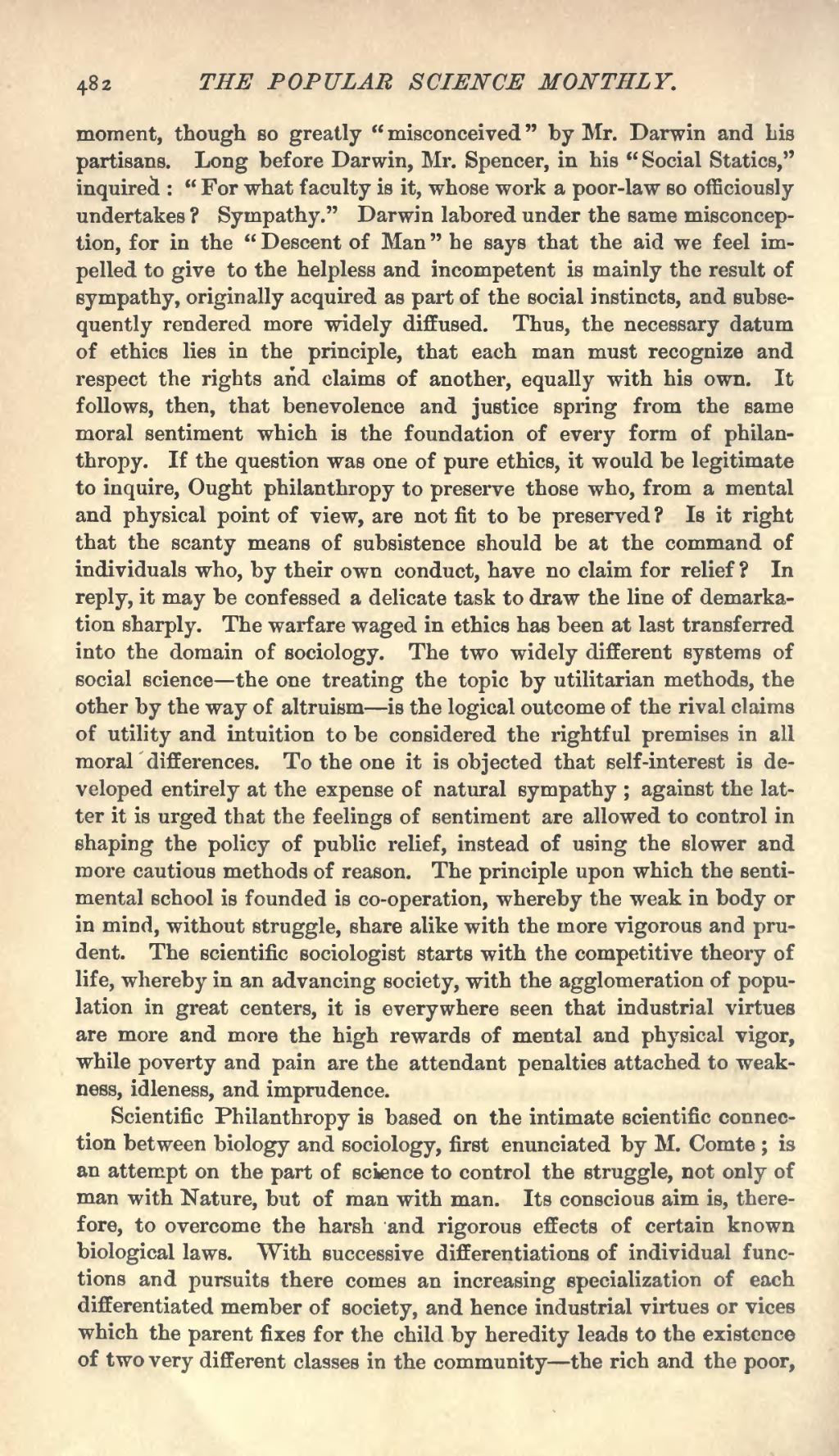moment, though so greatly "misconceived" by Mr. Darwin and his partisans. Long before Darwin, Mr. Spencer, in his "Social Statics," inquired: "For what faculty is it, whose work a poor-law so officiously undertakes? Sympathy." Darwin labored under the same misconception, for in the "Descent of Man" he says that the aid we feel impelled to give to the helpless and incompetent is mainly the result of sympathy, originally acquired as part of the social instincts, and subsequently rendered more widely diffused. Thus, the necessary datum of ethics lies in the principle, that each man must recognize and respect the rights and claims of another, equally with his own. It follows, then, that benevolence and justice spring from the same moral sentiment which is the foundation of every form of philanthropy. If the question was one of pure ethics, it would be legitimate to inquire, Ought philanthropy to preserve those who, from a mental and physical point of view, are not fit to be preserved? Is it right that the scanty means of subsistence should be at the command of individuals who, by their own conduct, have no claim for relief? In reply, it may be confessed a delicate task to draw the line of demarkation sharply. The warfare waged in ethics has been at last transferred into the domain of sociology. The two widely different systems of social science—the one treating the topic by utilitarian methods, the other by the way of altruism—is the logical outcome of the rival claims of utility and intuition to be considered the rightful premises in all moral differences. To the one it is objected that self-interest is developed entirely at the expense of natural sympathy; against the latter it is urged that the feelings of sentiment are allowed to control in shaping the policy of public relief, instead of using the slower and more cautious methods of reason. The principle upon which the sentimental school is founded is co-operation, whereby the weak in body or in mind, without struggle, share alike with the more vigorous and prudent. The scientific sociologist starts with the competitive theory of life, whereby in an advancing society, with the agglomeration of population in great centers, it is everywhere seen that industrial virtues are more and more the high rewards of mental and physical vigor, while poverty and pain are the attendant penalties attached to weakness, idleness, and imprudence.
Scientific Philanthropy is based on the intimate scientific connection between biology and sociology, first enunciated by M. Comte; is an attempt on the part of science to control the struggle, not only of man with Nature, but of man with man. Its conscious aim is, therefore, to overcome the harsh and rigorous effects of certain known biological laws. With successive differentiations of individual functions and pursuits there comes an increasing specialization of each differentiated member of society, and hence industrial virtues or vices which the parent fixes for the child by heredity leads to the existence of two very different classes in the community—the rich and the poor,
